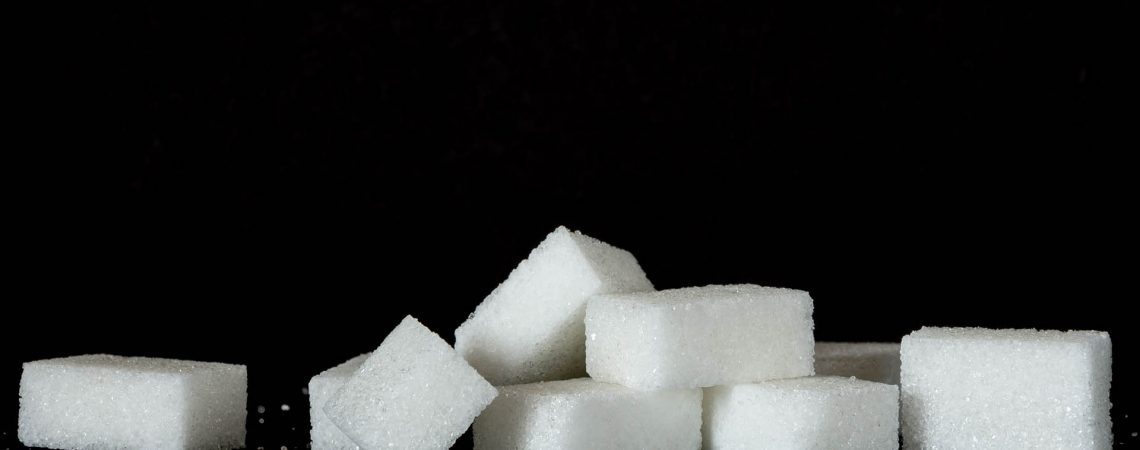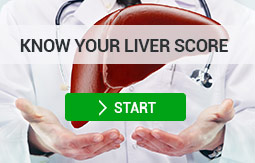Certain foods high in refined sugar are more obvious to spot, like pastries, cereals and sweetened drinks, but others are more difficult, such as bran muffins, fruit smoothies and soy milk. The American Heart Association (AHA) recommends a maximum of 150 calories or nine teaspoons of added sugar per day for men and 100 calories or six teaspoons for women. Too much sugar, particularly fructose (a type of sugar) can cause liver diseases and other health complications. Read our article to learn about the effects of refined sugar on the liver and what you can do to stay healthy.
What’s in this article
- How much sugar can the liver metabolize?
- What happens to the extra sugar the liver cannot metabolize?
- What are the consequences of too much refined sugar in the liver?
- How can you cut refined sugar out of your diet?
How much sugar can the liver metabolize?
There are three simple sugars: galactose, glucose and fructose. In the past, people’s fructose intake came from fruits, vegetables and honey, but today, high fructose corn syrup (a sweetener made from corn starch) is added to many food products, like candy, bread and condiments. Only the liver can metabolize fructose, and it can only break down so much. The amount of fructose safe to consume depends on factors like your age, gender, height and weight, however, a ballpark estimate is between 25-40 grams (0.9 – 1.4 ounces) per day. This is the equivalent of 2-3 apples, 3-6 bananas or 6-10 cups of strawberries. The liver cannot metabolize higher amounts of fructose.
What happens to the extra sugar the liver cannot metabolize?
If you consume too much fructose, your liver turns the excess into fat in a process called lipogenesis. The fat globules accumulate in liver cells, a condition known as non-alcoholic fatty liver disease, which affects about 1/3 of Americans. In the U.S. it is the most common form of chronic liver disease. Patients do not usually experience symptoms, but sometimes feel fatigued or pain in their upper right abdomen. The American Journal of Clinical Nutrition completed a study that revealed participants who consumed an additional 1,000 calories of foods high in sugar over a three-week period saw a 2% increase in body weight, but a 27% increase in liver fat. Fortunately, if caught in the early stages, patients can often reverse fatty liver disease with a healthy liver diet. In addition, the liver turns excess sugar into triglycerides, a type of fat released into the blood. Triglycerides are good for your health, but high triglycerides may lower good cholesterol, as well as increase blood pressure, fat around your waist and risk of heart disease.
What are the consequences of too much refined sugar in the liver?
Consuming too much refined sugar can lead to fatty liver disease, which can escalate to a more serious form of the disease called nonalcoholic steatohepatitis. This condition is associated with scarring and liver inflammation, and can slowly cut off essential blood flow to the liver. Steatohepatitis can further progress to cirrhosis, irreversible scarring of the liver, and liver failure. Symptoms of steatohepatitis and cirrhosis include: abdominal swelling, enlarged spleen, breasts in med, and blood vessels underneath the skin, jaundice (a yellowish tinge of the skin and whites of your eyes), and red palms. If you have any of these symptoms, check in with your doctor as soon as possible.
How can you cut refined sugar out of your diet?
One of the most effective ways to cut refined sugar out of your diet is to educate yourself on high sugar foods. For instance, one large soda from a fast food restaurant has approximately 75 grams of sugar ─ that is about three times your daily sugar intake. If you cut out one large soda (if you drink this every day), you can lose approximately 60 pounds in one year, decrease your risk of diseases like Alzheimer’s disease and live longer.
If you are not sure about the sugar content of a meal or food product, ask a restaurant manager and check food labels when grocery shopping. Food labels can often trick you, because they substitute “sugar” with other words. When reading a food label, check for the following: brown rice syrup, dried cane syrup, fructose corn syrup, honey, invert sugar, maple syrup, molasses, sucrose (and other words ending in -ose). You might feel surprised by how many foods that are advertised as being “healthy” actually contain a lot of refined sugar!
Opt for foods with no refined sugar and that have a low sugar content in general (even too much natural sugar is unhealthy). For a convenient, on-the go snack that is low in natural sugar, try Amsety bars. The nutrition bars contain no refined sugars, gluten, lactose or GMOs, have very low sodium and contain Super 16™, a nutrient-packed mix made from 16 plant based vitamins and minerals beneficial for liver health. They come in two delicious flavors: Peanut Butter Superstar and Dark Chocolate Champion. You can also check out healthy recipes low in sugar here.
Find out about the vitamins and minerals that make up an Amsety Bar!
References
www.liverdirectory.com
sugarscience.ucsf.edu
webmd.com
health.harvard.edu
rodalewellness.com
livestrong.com
mayoclinic.org
medicalnewstoday.com
muscleforlife.com
eatthis.com
health.com
medicaldaily.com
fatsecret.com

 (442) 244-5115
(442) 244-5115















